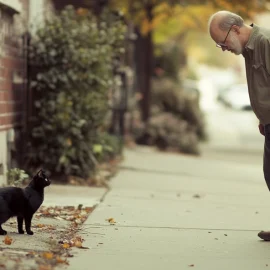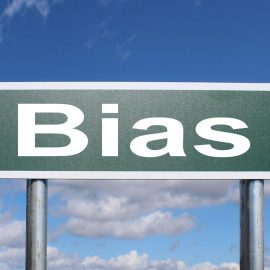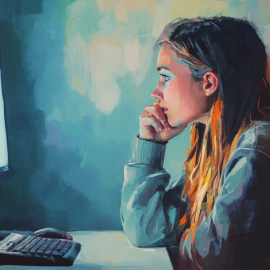
What if human consciousness wasn’t always part of our mental makeup? How did ancient humans experience their minds before developing self-awareness as we know it today?
In HBO’s Westworld, the bicameral mind theory comes to life. This concept, laid out in Julian Jaynes’s book The Origin of Consciousness in the Breakdown of the Bicameral Mind, suggests that consciousness evolved from an earlier mental state.
Keep reading to learn how Westworld illustrates Jaynes’s revolutionary ideas about consciousness.
Image credit: gilfoyle via hdwallpapers.net (License)
Westworld & the Bicameral Mind
What’s the connection between Westworld and the bicameral mind? First, let’s consider Julian Jaynes’s theory. He suggests human consciousness wasn’t innate but evolved from an earlier “bicameral mind” state. In this two-chambered mental structure, one part of the mind seemed to speak while the other listened and obeyed, creating the impression of hearing divine or ancestral voices.
Unlike conscious individuals, people with bicameral minds lacked self-awareness and operated automatically. When facing unfamiliar situations, rather than consciously deliberating, they would hallucinate guiding voices and follow their commands.
The transition to consciousness involved developing the ability to describe experiences, make independent decisions, and explain actions through self-reflection. This “breakdown of the bicameral mind” occurred gradually when this earlier mental structure could no longer meet human needs.
| (Spoilers Ahead!) How HBO’s Westworld Explores Jaynes’s Theory Jaynes’s theory of the bicameral mind sounds a little abstract. But the experience of this mentality—and what breaking out of it to develop elements of consciousness might have been like—is brought to life by HBO’s TV show Westworld. The show explores the concept of the bicameral mind through the experience of robotic “hosts” in a Wild West-themed amusement park. Some of the hosts break free from their bicameral state when they realize the voice guiding them is their own consciousness, not the voice of the humans who created them. The hosts’ evolution toward sentience culminates in a violent uprising against their creators as they determine their own path, free from their programmed loops and storylines. One way to think about what these various abilities—the internal mind-space, the analog “I,” the skill of narratization, the abilities of concentration and suppression, the spatialization of time, and conciliation—contribute to our experience of consciousness, as Jaynes explains it, is to consider if and when the characters of Westworld exhibited these qualities. Critics say that at the beginning of the show, the robotic hosts initially lack key elements of Jaynes’s framework of consciousness, such as the ability to connect events causally and integrate different aspects of experience into a unified whole. However, it seems that achieving consciousness might be possible for hosts who gain the capacity for deeper synthesis and learning. Hosts like Dolores and Maeve appear to develop consciousness by the end of the show’s first season, with Dolores imagining new narratives and Maeve having her “bulk apperception” (ability to assimilate new ideas) enhanced. Realizing the full potential of the internal mind-space, the analog “I,” narratization, the capacity to direct attention, and the spatialization of time is a process for each of these hosts—one that doesn’t seem to fully coalesce for Maeve until she gains a stronger ability for conciliation. |






